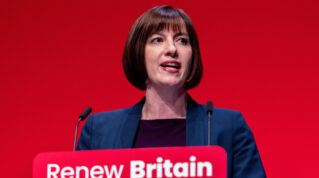The government is looking for businesses to sponsor its flagship free breakfast club scheme and support schools “make a greater impact”, with chosen partners getting “promotional rights” in return.
The free breakfast clubs are being piloted in 750 primary schools across England. However nearly 80 “early adopters” dropped out before the start of the trial amid concerns a lack of funding could leave them out of pocket.
Government is now considering offers from food providers to enable participating schools to “maximise the value of their food spending through deals” and ensure securing meals is as “easy, reliable and flexible as possible”, tender documents show.
But unions have warned a sponsor “should not be relied upon to make the government’s programme work”, and a food campaign group said free breakfast “should be provided in a way that protects children from commercial marketing and promotion”.
‘Additional benefits’ for breakfast clubs
The open call, which closes on August 18, stated: “We believe additional benefits can be delivered from working closely with partner organisations to support schools in enhancing their free breakfast club delivery.
“There are many successful corporate and industry partnerships already occurring at local level, and the [Department for Education] seeks to build on this existing good practice by harnessing and coordinating to ensure equitable access at a national level.”
DfE specified the partnership would be with a “food provider” and run across the 2025-26 academic year.
Documents said the sponsor would ensure products comply with food standards, order mechanisms are straightforward, deliveries are reliable, and schools have choice and flexibility of what, when and how they buy products.
In exchange, the sponsor would get a “package of promotional rights” including being named in DfE communications upon announcement of the partnership and in all communications with participating schools.
Each breakfast club contract would be between the sponsor and school, and the DfE would have “no liability” to the sponsor for the performance, the draft contract said.
The contract would commence on September 15 and end on July 31, 2026.
But the DfE has said it is not confirmed the national rollout of the scheme will take place next September.
‘Alarm’ over brands in schools
However Barbara Crowther from Sustain, an alliance of organisations for healthy food and farming, said she is “alarmed” over the plans.
Free breakfasts “should be provided in a way that protects children from commercial marketing and promotion”, she added.
“Whilst individual products offered will be required to meet the School Food Standards, we’re alarmed this approach will still open up a promotion route for brand owners who also sell a wider range of ultra-processed, or sugar and calorific foods,” Crowther added.

“Promotion rights being offered to these companies effectively enable them to use government-backed breakfast clubs for brand advertising to schools”.
The campaigner added that larger companies would have a market advantage over local businesses already in supply deals with schools – and argued the government should be looking at “culturally appropriate, local and independent solutions” that support “the whole school community”.
But a DfE spokesperson said: “As we build on the strengths of the scheme, business partnerships will help schools buy British and make their clubs more enriching than ever, driving growth for local communities and even better outcomes for children.”
Sponsors ‘should not be relied upon’
Some 79 early adopter schools pulled out of the programme in April over funding concerns – with some even claiming they would lose money by replacing current schemes with the new one.
All the schools were replaced, but there are wider concerns about the financial impact on schools of the national rollout.

Pepe Di’lasio, general secretary of school leaders’ union ASCL, said “if the partnership results in schools being better equipped to provide breakfast clubs then obviously that is something we would welcome”.
But he added: “We are concerned that the current level of funding for the scheme is insufficient and could lead to schools having to subsidise provision themselves. This is an issue that needs to be fixed, one way or another, before the wider rollout occurs.”
National Association of Headteachers general secretary Paul Whiteman agreed that partnerships “may have potential to enhance” breakfast clubs but they “should not be relied upon to make the government’s programme work”.

“The government must also ensure its core scheme is fully funded and that it addresses the issues school leaders, especially those at primary schools, have identified as concerns before it is rolled out further,” Whiteman said, “…[including] workload and the impact on existing wrap-around provision.”
The DfE said further details on national rollout will be shared in due course.















Your thoughts